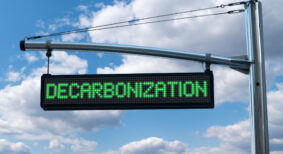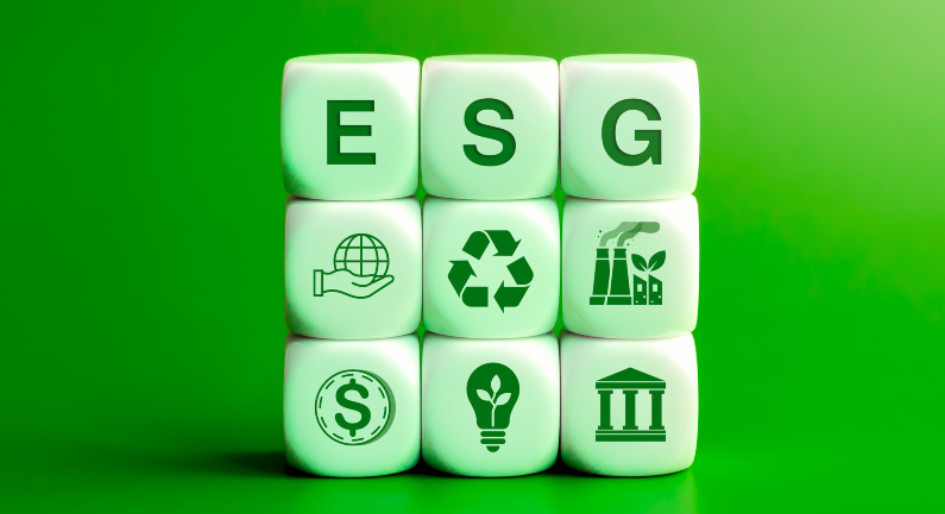National averages aren’t revealed in the recently released 2023 results of the GRESB benchmark for the environmental, social and governance (ESG) performance of commercial real estate portfolios. Nevertheless, during last week’s an online discussion of trends underpinning the macro-level numbers, Dan Winters, senior director of market development and strategic initiatives for GRESB, confirmed Canada’s high ranking among the 75 countries represented in the survey.
The Australia/New Zealand combo that comprises Oceania once again attained the highest score of the four global regions in the benchmark with an average of 94 out of 100 possible points across five management-related elements and 72 out of 100 across nine performance-related elements. Meanwhile, the 80 Canadian participants can be assumed to have generally exceeded the Americas region — which also includes respondents from the United States, Mexico, Brazil and Chile — averages of 88 for management and 66 for performance.
“Oceania, they are leaders, without a doubt. Canada is close at number two,” Winters reported. “In the Americas, the leadership is coming from Canada. What’s going on there? Decarbonization, electrification and on-site renewables.”
That’s in the context of surging participation rates in Canada and globally. This year, 2,084 real estate entities worldwide reported on their policies, practices and property-level outcomes, representing more than 170,000 individual assets collectively valued at USD $7.2 trillion. There was a 20 per cent year-over-year increase in total participation, up from 1,820 respondents last year, while Canada added 21 new respondents, continuing the expansion that has seen GRESB participation triple since 2019.
Newbies no drag on progress
Despite the sizable quotient of newbies with lower scores, the 2023 results show improvement, particularly in performance-related elements where the global average rose to 67 from 61 in 2022. That has a heightened flow-through impact in the final GRESB score, which is also plotted on a scale of 100, given the greater weighting tied to performance.
Some of the signs of progress include a reduction in greenhouse gas (GHG) emissions, more on-site generation of renewable energy, advancements in risk assessment and data monitoring and review, and more target setting. On the flipside, energy-use and water-use intensity were up year-over-year, reflective of post-pandemic increases in office occupancy.
The point spread for this year’s 5-star quintile, representing the top 20 per cent of scores, ranges from 97.43 to 87.46. First-year participants recorded an average score of 59.6 to heavily populate the 1-star quintile at the low end of the scale, where scores range from 64.98 down to 6.91. Participants with five or more years of GRESB experience typically attained scores upward of 80, giving them 3-star or 4-star standing for 2023.
“First year is a struggle to hunt for structured non-financial data and put together a program,” Winters acknowledged. “That’s okay. It’s all about benchmarking an improvement. If you’ve been in the GRESB benchmark for 10 or more years, (the averages indicate) you’ve got a score that’s pretty strong.”
Contributors to the online discussion identify investor demands, regulatory pressure and climate-related physical risks among the prominent drivers of GRESB uptake. In Asia, for example, Pooja Changani, manager of GRESB member relations for the region, tied the 900 per cent year-over-year jump in Taiwanese respondents (from 1 to 10) to new directives requiring all companies listed on the Taiwan and Taipei stock exchanges to submit sustainability reports. Similarly, the Securities & Exchange Board of India’s (SEBI) mandated environmental reporting for the top 1,000 publicly listed companies is linked to the 34 per cent increase in GRESB participation in that country, climbing from 23 to 31 entities this year.
Meanwhile, Europe’s leading push on environmental regulations has long been considered a factor in the dominant percentage of European respondents in the benchmark. That now includes the corporate sustainability reporting directive (CSRD) and sustainable finance disclosure regulation (SFDR) in European Union and sustainability disclosure requirements (SDR) in the United Kingdom. In 2023, another 106 entities joined in, pushing the region’s tally up to 1,013 participants — more than double since 2019.
Sharpening the net-zero focus
Looking across the Atlantic, Winters speculated that Canada’s carbon tax — currently at $65 per tonne of equivalent emissions, but slated to continue rising to $170/tonne by 2030 — influences its standout decarbonization commitments within the Americas region. Across the entire 2023 GRESB database, 56 per cent of participants have publicly committed to reduce greenhouse gas (GHG) emissions and 50 per cent have set targets aligned with the Paris Agreement goals for 45 per cent reduction in emissions by 2030 and net-zero emissions by 2050, but the largest share of target-setting is occurring in Oceania and Europe.
Nearly 80 per cent of respondents in Oceania (116 of 143) have set net-zero targets versus just 36 per cent (201 of 555) in the Americas. However, Winters revealed Canadian participants are much more likely to be implementing asset-level plans in pursuit of portfolio-wide decarbonization — also in step with prominent institutional investors that are setting net-zero targets.
“Every asset manager in Canada that’s part of the GRESB benchmark is on notice,” he suggested. “Watch for the ripple effects because Canadian pension plans are the top foreign investors in United States real estate.”
Representative of that trend, as one of three GRESB participants invited to present examples of innovation and action, Kit Milnes, vice president, sustainability and resilience, with KingSett Capital, explained how the target for his company’s core property fund was derived through the science-based targets methodology. To pursue a 67 per cent reduction in emissions by 2035, KingSett has developed a modelling tool for asset-level decarbonization that it is freely sharing with the commercial real estate industry. For new development, it’s specifying net-zero operational capability, reducing embodied carbon as much as possible and offsetting the remainder.
“We understand where the world needs to get to by 2050, but we want to metric, concise verifiable steps along the way in order to make sure that we are responsible with our investor money and we’re taking actions that are going to yield real results,” Milnes said. “We think it’s important for everyone to be able to understand where KingSett is in this race to decarbonize and what tools we’re using. We’re sharing that so others might gain on the success that we’ve had or improve what we’ve created so others can benefit as well.”






